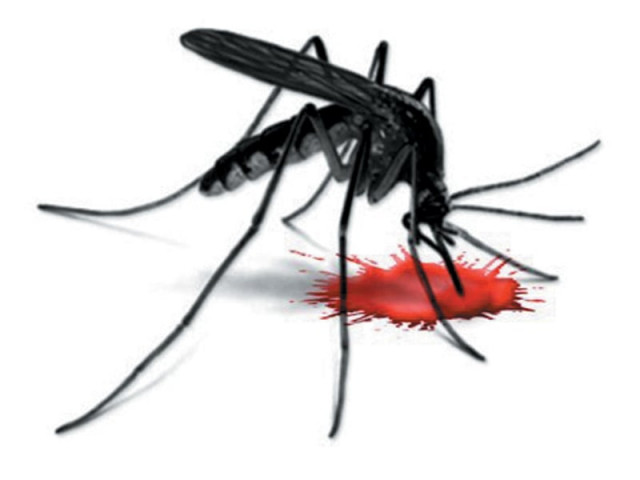Combating dengue: Sharp decline in number of cases reported this year
Drop in temperature after October 15 will further reduce risk of the disease.

As compared to 2011, there has been a significant decline in the number of dengue cases reported in the capital this year. Health experts endorsed the measures taken by the government to control the spread of dengue fever in Islamabad, but said “more needs to be done”.
According to the statistics collected from National Institute of Health (NIH), till October 2011, the number of confirmed dengue cases reported from Islamabad were 342. This year, it is eight.
In 2011, Pakistan Institute of Medical Sciences (Pims) confirmed 219 dengue cases; this year only one case has been reported from the hospital so far. In Polyclinic Hospital, there were 41cases last year, but just four cases have been reported so far. Two cases were reported from a private hospital.
Talking to The Express Tribune, Capital Administration and Development Division (CADD) Health Adviser Dr Yaqoob Qureshi said considering the situation last year, it was expected that there would be an outbreak of dengue fever, but timely measures by the federal government helped control the disease.
This year there was more focus on raising awareness for which pamphlets were distributed in schools, traffic signals, hospitals and commercial areas and teachers were imparted training, he said. Other measures included killing larvae in high-risk areas with timely fogging and fumigation.
Health Services Academy (HSA) Associate Professor Dr Muhammad Saleem Rana, a vector control expert, said the decrease in the number of confirmed cases this year is a sign that measures to fight dengue were successful, however there are a few areas which still need attention. “Whenever a case is reported, a team is supposed to visit the area in question within 24 hours, carry out fogging or fumigation and find out how many suspected cases there are. Typically, it takes the team a week to do the job,” he said.
The situation last year was scary and people have taken precautionary measures themselves to ward off the threat, Dr Rana said. HSA will collaborate with leading universities in Germany and Denmark for research on dengue mosquitoes and infected persons, he added. “This will help to control the disease in future.” Dr Rana said.
World Health Organisation Focal Person for Vector Control, Dr Qutbuddin Kakar said the low number of cases is a good sign, but there are chances more cases will be reported by October 15. “After the rains, new breeding grounds for mosquitoes helped them multiply, but it takes them almost a month to mature,” he said. It is expected that after October 15, a drop in temperature will affect the activities of dengue mosquitoes, Dr Kakar added.
He said strict action by the govt this year helped to control the spread of dengue fever. Show-cause notices and first information reports were lodged against hospitals and organisations which did not implement preventive measures and where larvae were found.
Published in The Express Tribune, October 3rd, 2012.



















COMMENTS
Comments are moderated and generally will be posted if they are on-topic and not abusive.
For more information, please see our Comments FAQ